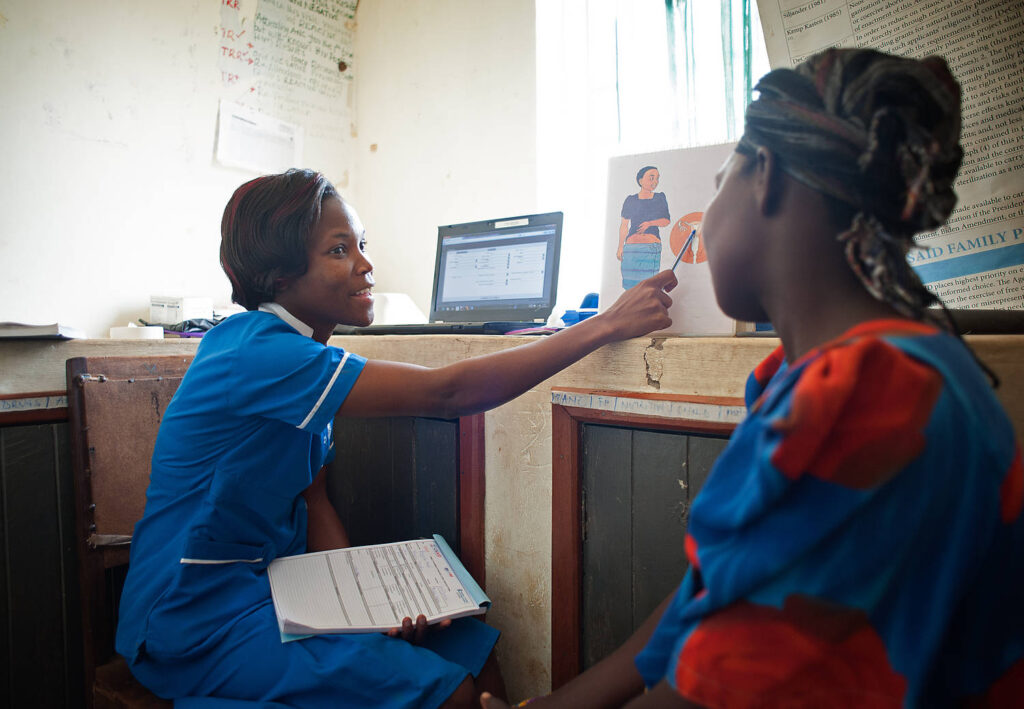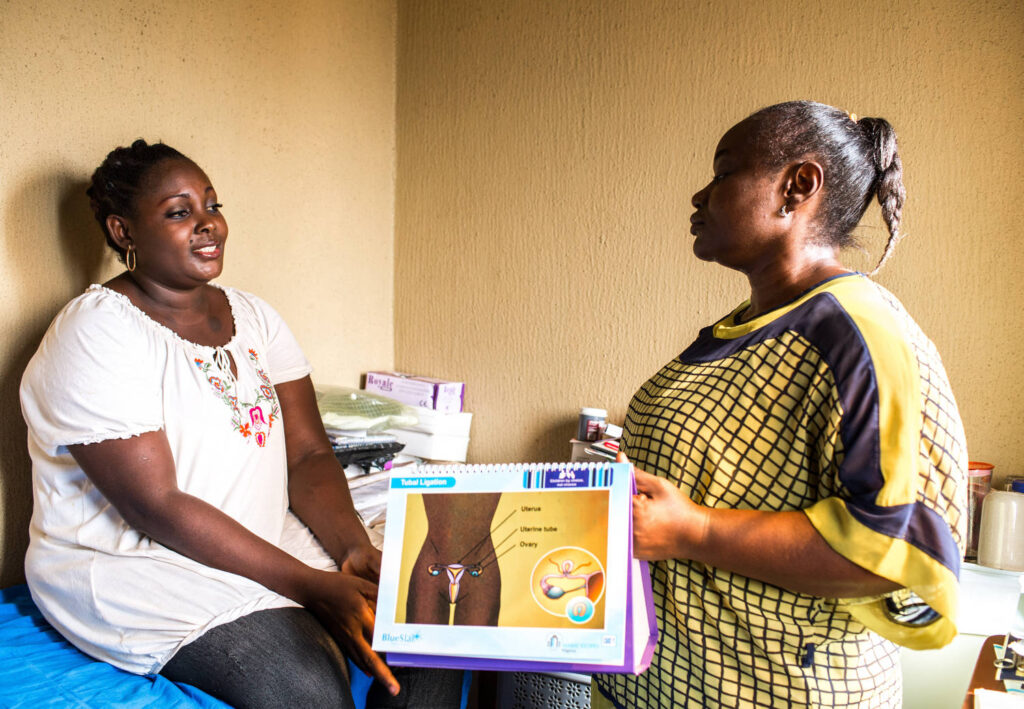Cervical Cancer Screening and Treatment
Testing to detect early signs of cervical cancer

An effective method for detecting abnormal cells in the cervix
This isn’t a test for cancer, but can detect abnormal cells that could lead to serious problems like cervical cancer.
Symptoms may not be experienced beforehand, until the condition is at an advanced stage.
Abnormal cells are not usually cancerous, especially if you have regular screenings. However, if abnormal cells are noticed at a screening they can be closely observed and/or treated to prevent cancer from developing. Regular screening has been proved to reduce the risk of advanced cancer by 90% on average for women aged 35-64.

Regular cervical screening tests are recommended for all women 25 years and older.
Call us toll-free on
1131 OR WhatsApp us on 0880 185 060
Find our locations that offer cervical cancer screening

What to expect at your appointment
The procedure is generally very quick and painless, and may just be momentarily uncomfortable.
The practitioner will ask you to lie on a couch. They will gently insert an instrument called a speculum into your vagina in order to view your cervix. A small brush is used to take a sample. This picks up cells from inside the opening of the cervix. The test only takes a couple of minutes.
If you have any health concerns, further to your cervical screening, which you would like to talk about, you may also want to use your appointment to ask these questions.
Frequently asked questions about cervical screening
Yes, it can be treated in any of our clinics. We use cryotherapy to remove abnormal cells from your cervix. This gets rid of the bad cells so new, normal cells can grow back in the same spot.
In most cases (about 85-90% of the time), cryotherapy cures abnormal cells so that the problem does not come back.
Most people feel mild cramping or pressure during cryotherapy. It can also make your vagina feel cold. Some people don’t have any discomfort at all.
We recommend that women over the age of 25 get screened every 3 years until the age of 49, and then every 5 years until the age of 64.
You will be asked to undress from the waist down. If you are wearing a full skirt or a dress with a full skirt you can lift the skirt up rather than take it off. We will provide something for you to cover yourself with while we perform the test, if you like.
Some women find it momentarily uncomfortable, but it is a very quick procedure. The apprehension, along with embarrassment, puts some women off having a smear test. Try not to worry. Many women will tell you that they found it fine and that it’s worth a little discomfort for peace of mind. It is best to relax as much as possible by breathing slowly and deeply to ease any tension.
Some chemicals found in spermicide, lubricant, or barrier methods of contraception such as condoms, cervical caps and diaphragms could affect the test. Please refrain from having sex using these methods of birth control for 24-hours before the test. Sex with any other contraceptive method before the test will be fine.
Receiving your results
We will contact you (by your preferred method), usually within 2 weeks of the procedure. The results you receive will be described as either:
- Normal / negative
- Unclear / insufficient / inadequate – meaning that the cells could not be viewed and we will need to take another sample in 3 months’ time
- Abnormal / irregular – meaning that changes have been observed, either mild, moderate or severe
If your results are irregular or abnormal
Please don’t be frightened. Any change in the cells of the cervix usually happens very slowly, and may be cleared by the body’s immune system. Slight abnormalities are very common in women under 25. Abnormal cells are not cancerous, but could be an early warning sign which we need to keep an eye on.
We’ll send a full explanation of what the test results show and advise you on what to do next.
If your results show cell changes we may recommend that you have another smear test after a period of time, or suggest that you make an appointment for further investigation. Further investigation, such as a colposcopy, depends on the type of abnormality seen.









